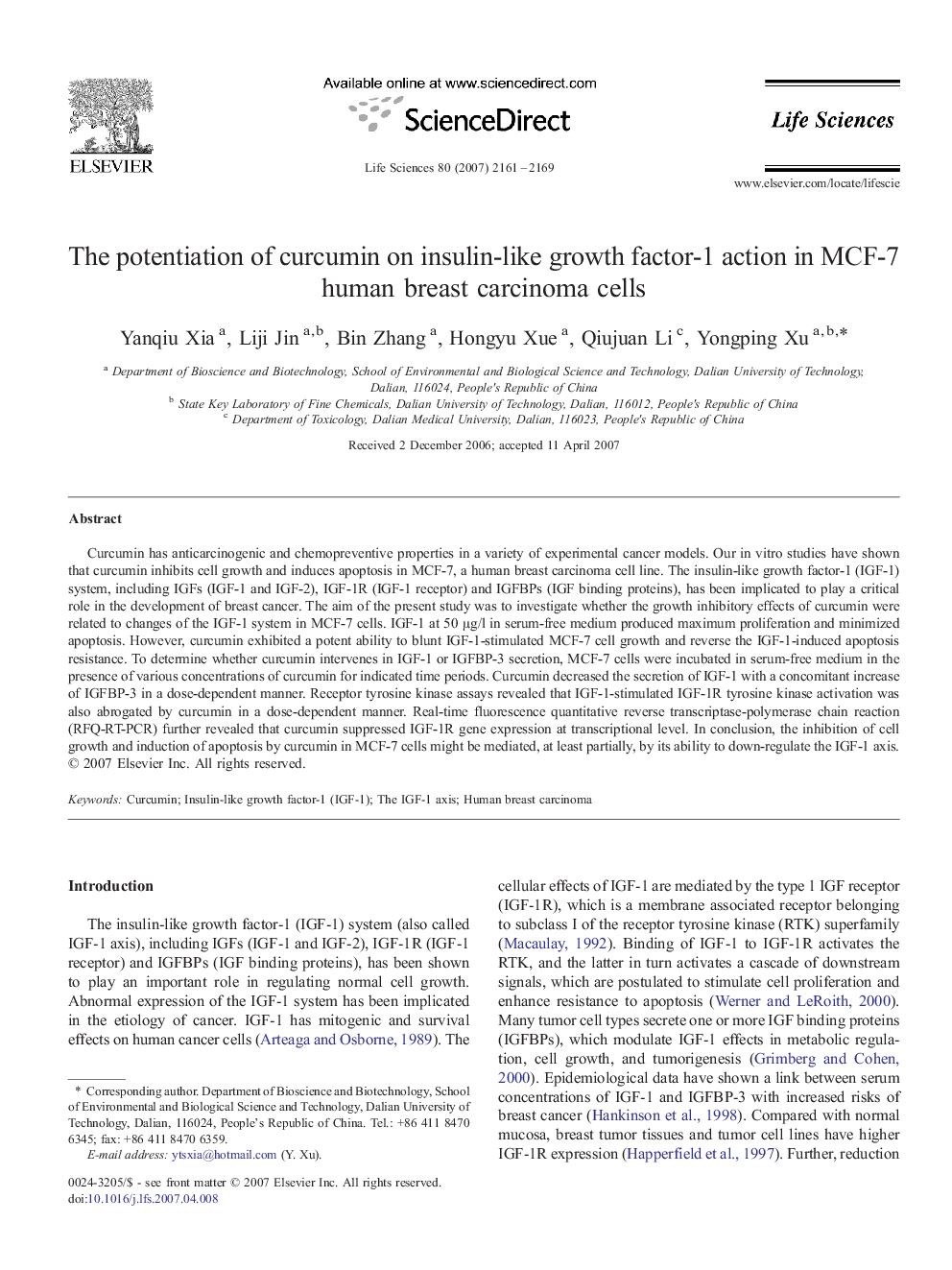| Article ID | Journal | Published Year | Pages | File Type |
|---|---|---|---|---|
| 2553326 | Life Sciences | 2007 | 9 Pages |
Abstract
Curcumin has anticarcinogenic and chemopreventive properties in a variety of experimental cancer models. Our in vitro studies have shown that curcumin inhibits cell growth and induces apoptosis in MCF-7, a human breast carcinoma cell line. The insulin-like growth factor-1 (IGF-1) system, including IGFs (IGF-1 and IGF-2), IGF-1R (IGF-1 receptor) and IGFBPs (IGF binding proteins), has been implicated to play a critical role in the development of breast cancer. The aim of the present study was to investigate whether the growth inhibitory effects of curcumin were related to changes of the IGF-1 system in MCF-7 cells. IGF-1 at 50 μg/l in serum-free medium produced maximum proliferation and minimized apoptosis. However, curcumin exhibited a potent ability to blunt IGF-1-stimulated MCF-7 cell growth and reverse the IGF-1-induced apoptosis resistance. To determine whether curcumin intervenes in IGF-1 or IGFBP-3 secretion, MCF-7 cells were incubated in serum-free medium in the presence of various concentrations of curcumin for indicated time periods. Curcumin decreased the secretion of IGF-1 with a concomitant increase of IGFBP-3 in a dose-dependent manner. Receptor tyrosine kinase assays revealed that IGF-1-stimulated IGF-1R tyrosine kinase activation was also abrogated by curcumin in a dose-dependent manner. Real-time fluorescence quantitative reverse transcriptase-polymerase chain reaction (RFQ-RT-PCR) further revealed that curcumin suppressed IGF-1R gene expression at transcriptional level. In conclusion, the inhibition of cell growth and induction of apoptosis by curcumin in MCF-7 cells might be mediated, at least partially, by its ability to down-regulate the IGF-1 axis.
Related Topics
Health Sciences
Medicine and Dentistry
Cardiology and Cardiovascular Medicine
Authors
Yanqiu Xia, Liji Jin, Bin Zhang, Hongyu Xue, Qiujuan Li, Yongping Xu,
